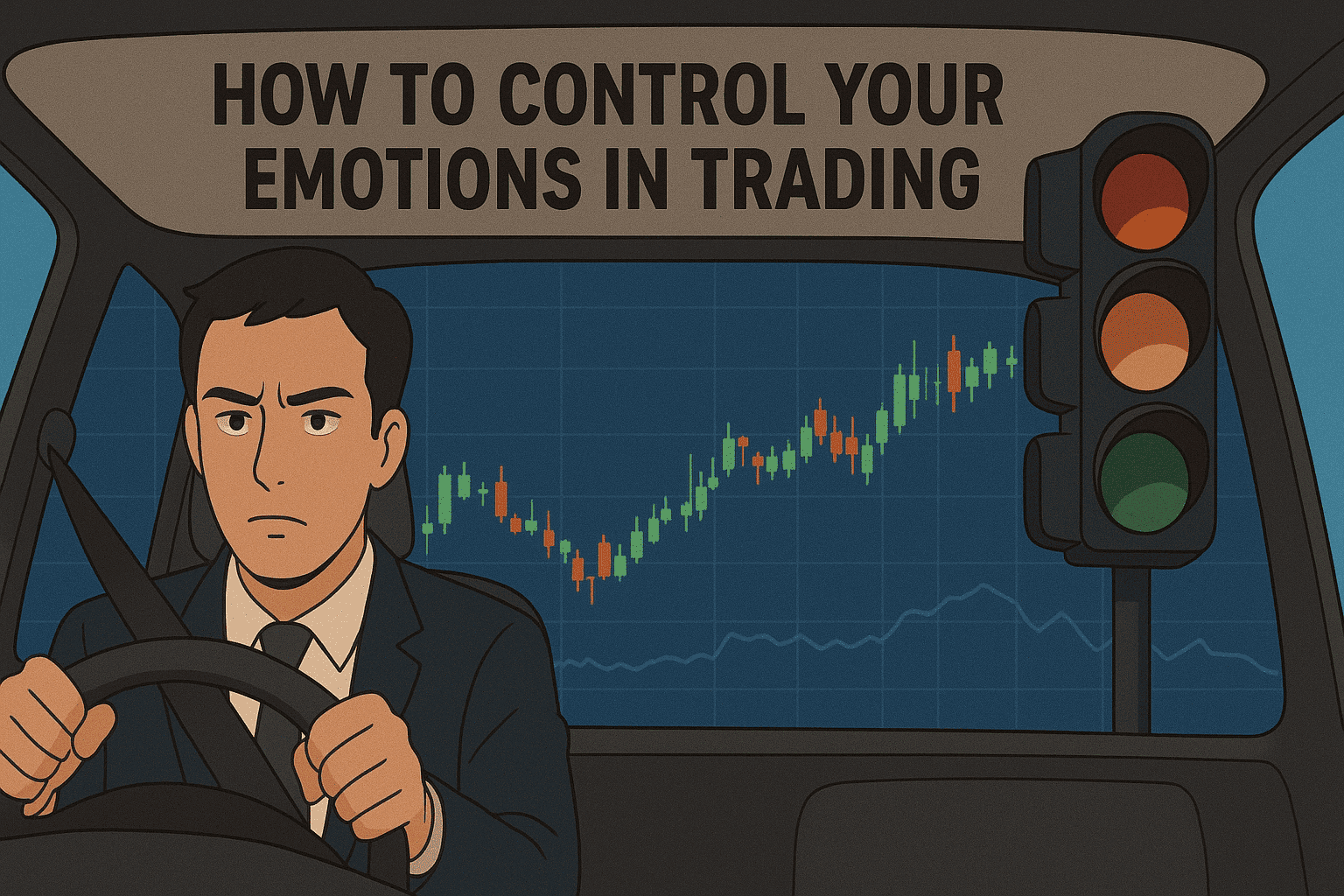“Be honest — how many times have you asked yourself, ‘Why did I sell too early?’ or ‘Why didn’t I exit when I had the chance?’ This happens especially when you’re struggling to make a profit. In such cases, the problem often isn’t your strategy, but your mindset. Therefore, it’s important to learn the simplest way how to master trading psychology.
Let’s fix that. This blog covers common psychological issues that traders face and how to overcome them.
What is Trading Psychology?
Trading psychology is all the stuff happening behind the screens; it is all about your thoughts, your nerves, and your doubts that arise at the time you trade in the market.
Simply, it’s not charts or signals; it’s what you do when the red candle hits, or when a trade suddenly goes your way.
That’s not bad luck. That’s psychology.
How to Learn Trading Psychology?
You can’t force emotion away, but you can train yourself to respond differently.
Here’s how you can master your emtions during trading:
- Map your triggers
Whenever you made a mistake, trading with anger, FOMO, or boredom, note down what caused it: “network calls”, “overnight news”, “loss followed by revenge trade”. Knowing triggers gives you power. - Test with small money
Never use your whole capital in one trade. When trading, even after gaining experience anda good hold on your strategy, practice and gain confidence by taking small positions. This way you will be able to gain better control and become more disciplined in trading. - Learn from real traders
Watch success stories, and apart from that, the failure is on top. It will help you identify the mistake that you are doing and compare the reactions of pro traders with loss-making traders to get a better understanding. - Consider Mentorship
If you have built your own setup that is giving good results in backtesting but still failing in the live market, then consider taking mentorship to improve your psychology. Learning from experienced traders and following their set of rules will help you to become a confident and more profitable trader.
How to Improve Trading Psychology
Mastering Trading: It’s All About Habits
Once you’ve got the basics down, it’s all about developing the right habits.
You know, like how you practiced for an exam — repeating the same steps until they become second nature.
That’s what we’re after in trading, too. The more consistent you are, the more automatic it becomes.
Pre-Market Prep: Get Ready the Night Before
Think of this like preparing for an important exam — you wouldn’t wait until the last minute, right?
You’d get everything in order the night before: keep your stationery ready, plan your route to the exam center, and arrive early to avoid any last-minute stress.
It’s the same with trading. Before the market opens, take time to do your pre-market analysis.
Set your key levels, determine your risk, and figure out your position sizing. That way, when the market opens, you’re already prepared, calm, and ready to execute.
Daily Trading Journal: Your Reflective Tool
After each day, take a moment to jot down your successes, failures, and the emotions you felt throughout your trades.
It’s not just about the profit or loss; it’s about the journey. By keeping track of your daily experiences, you’ll be able to see patterns over time — things that are holding you back and things that are helping you move forward.
Whether it’s fear, greed, or something else, this journal is your window into improving your mindset.
Fixed Risk Per Trade: Consistency Over Confidence
It’s tempting to think that once you get a bit of confidence, you can start taking bigger risks.
But here’s the thing — even when you feel invincible, always stick to your fixed risk limit of 1-2% per trade.
This keeps your emotions in check and shields you from big losses that could derail your progress. Remember, trading is a marathon, not a sprint.
Trading Psychology Strategy
Here’s where the magic happens. Trading success isn’t just about having the right strategy; it’s about having the right mindset. Follow these rules, and you’ll notice a difference in your trading journey:
- Plan your trade, then trade your plan.
Don’t wing it. Every trade should have a clear strategy and goal before you even click the button. - Know when to stop.
If you hit your loss limit for the day, walk away. There’s no shame in calling it quits when you’ve reached your limit. Protect your capital for tomorrow. - Journal every trade.
Don’t just record numbers — record your emotions too. Your mind plays a huge role in your success or failure, so pay attention to what you’re feeling, especially during tough moments. - Kill the FOMO.
Fear of missing out? It’s a trap. If a trade doesn’t align with your plan, skip it. There will always be another opportunity. - Pause before you enter.
Sometimes, it’s not about the profit, it’s about the pause. Taking a deep breath before pulling the trigger can be more important than jumping in too quickly. - Focus on process over profit.
Winning is great, but don’t let profit be your only measure of success. Focus on executing your plan with precision and consistency — that’s where true success lies. - Weekly review: Reflect and improve.
Take time each week to review your trades, learn from them, and tweak your strategy if needed. The small improvements compound over time.
Your Next Step: Master Your Mind, Master Your Trades
Success in trading begins with mastering your mindset. Once you’ve got that down, the profits will follow.
Ready to take it to the next level?
Join Stock Pathshala’s Stock Market Mentorship Program. Together, we’ll practice real trades, reflect on real results, and work on locking in consistency. Because the real secret to success? It’s you — and how you control your mind.
Conclusion
You don’t need to remove emotion from trading — just train it to behave. Over time, you’ll find you act less, think more.
The more you work on your psychology, the easier trading feels. Losses won’t scare you, wins won’t make you reckless, and FOMO won’t control your clicks.
This is where you go from reacting to the market to truly managing yourself — and that’s when consistency begins.
Before investing capital, invest your time in learning Stock Market.
Fill in the basic details below and a callback will be arranged for more information:




